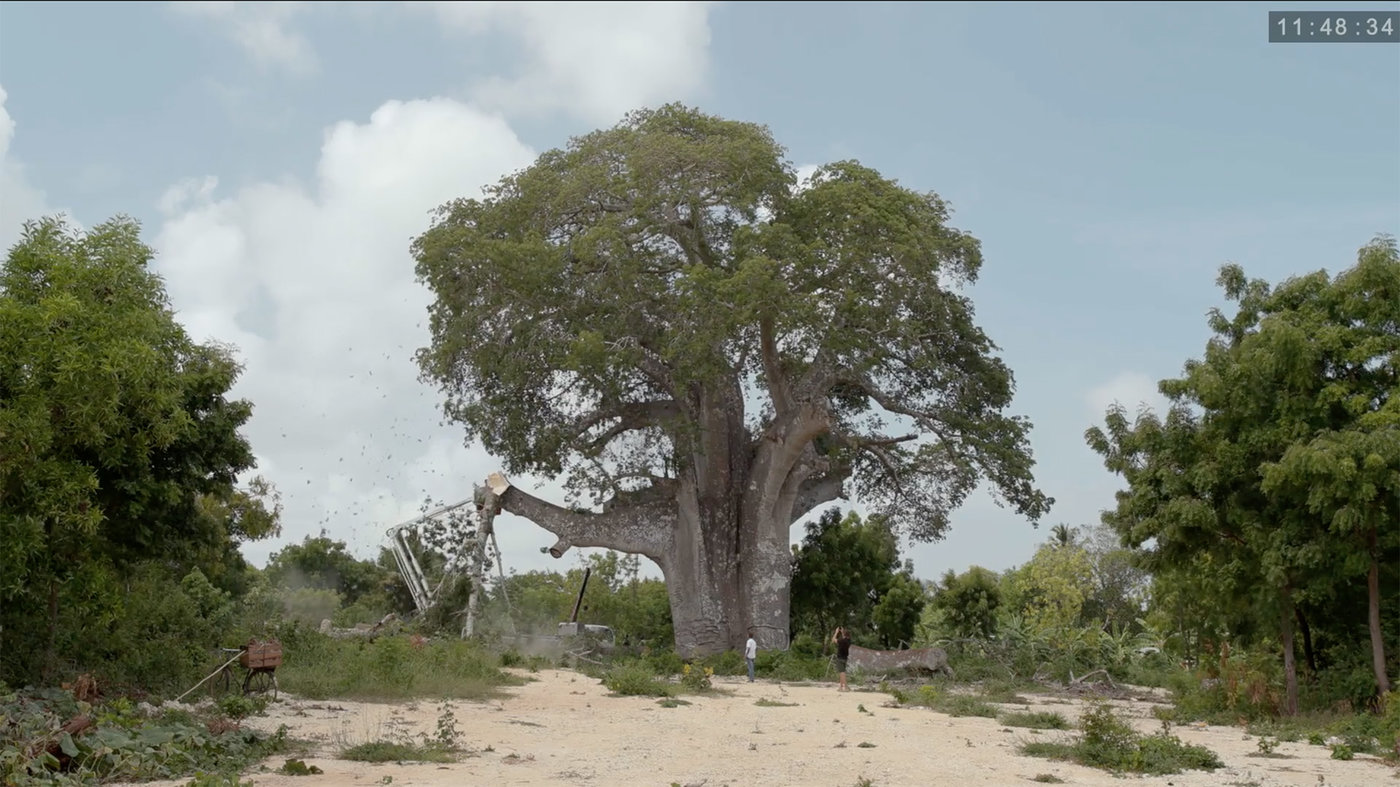Taming the Garden
Director/ Salomé Jashi
Watched on MUBI
Rating 2.5/5
What does a filmmaker owe their audience? Do they owe them the answers to the basic questions, the who-what-why-where-how? No, of course not. They don’t really “owe” their audience anything, but if a filmmaker makes a film they want seen, rather than a film that is a pure expression of personal art that does not seek viewers (but one that viewers may stumble upon in an art gallery), there needs to be some attempt at providing the basics of engagement, if for no other reason than to prevent the viewer from constantly checking their phone or a printed brochure during the film’s running time in order to read the director statement or the critical review that might provide clues to what is happening on screen.
Taming the Garden, the frustratingly vague and exceedingly over-praised offering from filmmaker Salomé Jashi, is such a film. Rigorous to the point of monotony, abstruse without being in any way experimental, plodding to the point of inertia, yet with just enough visual information and editorial chicanery to keep a viewer wondering where it’s going, the movie could not exist without the sycophantic support of the film festival post-screening Q&A and the EPK (electronic press kit) critiques that trail in its wake like eager puppy dogs seeking their own claim to relevance. Where would festival grandees and the badge-wearing arthouse press be without films like Taming the Garden to preen on about, to coddle the filmmaker, and to elevate the mundane to the level of Janus-worthy distribution?
This is what Taming the Garden looks like: huge machines remove massive trees from local villages in an unnamed country, packing the trees and their root systems in giant square planters while the local villagers complain and marvel and mention a never-named someone-somewhere who is doing this and they don’t know why. The planters are then carted to the sea, where they are loaded on barges and shipped to somewhere else (we think), where they are then re-planted (we guess) in some kind of lovingly-tended, pretty park with mown grass and automatic sprinklers (at least that much is clear).
This is what the Taming of the Garden website tells us the film is about: “A powerful man, who is also the former prime minister of Georgia, has developed an exquisite hobby. He collects century old trees along Georgia’s coastline. He commissions his men to uproot them and bring them to his private garden. Some of these trees are as tall as 15-floor-buildings. And in order to transplant a tree of such dimensions some other trees are chopped down, electric cables are shifted and new roads are paved through mandarin plantations. The film moves the concept of uprooting from its metaphorical meaning into an oppressive, tangible and yet surreal reality.”
Thank you, website, for answering the who-where-why questions, which is so important for contextualizing the what and the how which you also answer, redundantly, since the what and the how is already on screen: “some of these trees are as tall as 15-floor-buildings. And in order to transplant a tree of such dimensions some other trees are chopped down, electric cables are shifted and new roads are paved through mandarin plantations.”
Instead of actual information, information that in no way would diminish the so-called “poetry” of the film’s visuals and rhythms (poetry is the fallback description for all of these minimalist slow-cinema immersions), we get industry-on-parade sequences featuring drills and winches and cables and lots of observers muttering about payouts and broken promises. This is maybe what counts as poetry in documentary films today, but be sure to come to the film armed with the online synopsis, or the fawning Variety review, or the self-important transcript from the festival Q&A, or else it’s your own damned fault for not seeing the poetry for the trees.

